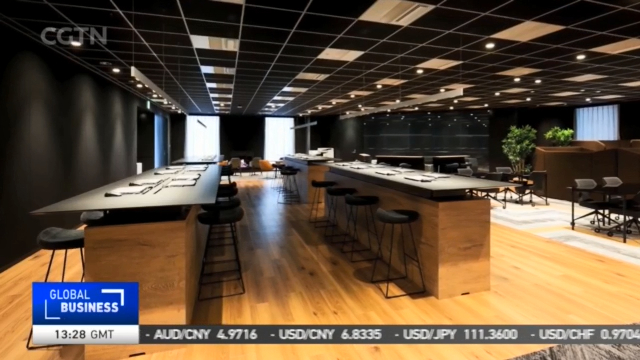
22:26, 30-Aug-2018
Tokyo's 'Jisa Biz' Program: Making workplace more flexible, easing commuter crunch
Updated
21:50, 02-Sep-2018
02:55

Tokyo is launching its 'Jisa Biz' office time-shifting campaign, created in part to reduce rush hour train overcrowding. The campaign also aims to improve general work-life balance issues, child care opportunities, and would potentially reduce useless office overtime hours. Hitachi also announced last week that it will give up to about 100 thousand employees the freedom to work from home, under a program that the company is rolling out over the next three years.
Tokyo's crowded rush hour trains have become the stuff of legend and a nightmare for the commuting workers who use them daily. Trains jammed to the gills have been a morning rite of passage, unavoidable, that is, until now.
"Jisa Biz!"
'Jisa Biz' or 'Flex-Time Business' is a Tokyo Metropolitan Government initiative aimed at promoting staggered work hours in an effort to reduce rush hour train overcrowding. With over 700 companies participating, the goal of work-life balance improvement in the hidebound Japanese office culture might just be a possibility.
KEITA NAGAO TOKYO METROPOLITAN GOVERNMENT "The goal is not just time shifting. It will change our work style. It will be the legacy of the Tokyo Olympics, and it'll be a social movement for enjoying personal time, and having more time with family."
The workplace time-shifting program is being promoted with an extensive advertising campaign.
KEITA NAGAO TOKYO METROPOLITAN GOVERNMENT "We ask leading companies to put this poster up at their offices, and also ask the train companies to post it in their trains. We've made promotional video clips to tell the good points of Jisa Biz and broadcast them on the digital screens in the trains."
STEVE ROSS TOKYO "For the staff of the Tokyo Metropolitan Government, the time-shifting plan is still an experiment. But local companies have already embraced the challenge of making the workplace more flexible, and easing the commuter crunch."
For Japan's Hitachi, Ltd., a corporate remote work program has been going on for decades. 8,000 to 15,000 workers may be working remotely at any time, depending on the season.
KYOKO KONDO, MANAGER HITACHI, LTD. "This is our original idea. In 1999, we made a program for working at home. We've been working on this issue for about 20 years. And we're doing it more and more, due to the push to work globally."
Around 2,000 companies and organizations joined a Japanese government-led 'Telework Days' campaign in July, aimed in part at easing rush hour crowding during the 2020 Tokyo Olympic Games. And while companies may be slow to bend to a new working style that is adjustable as to time and location, employees are quick to realize the advantages.
KYOKO KONDO, MANAGER HITACHI, LTD. "I go directly to the event location to attend seminars or meetings near home, and I work at home in the morning before that. It saves me time."
Steve Ross, CGTN, Tokyo.

SITEMAP
Copyright © 2018 CGTN. Beijing ICP prepared NO.16065310-3
Copyright © 2018 CGTN. Beijing ICP prepared NO.16065310-3